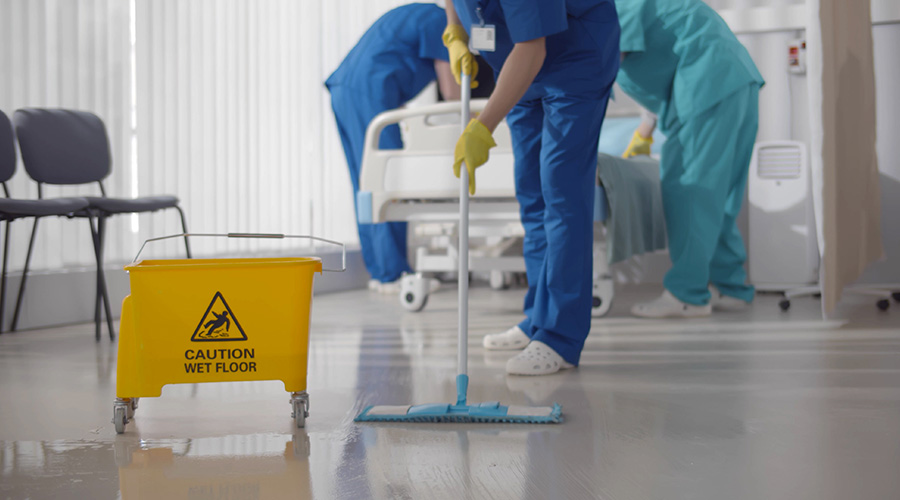To identify which hand drying method is preferred in the U.S., Cintas Corporation (NASDAQ: CTAS) commissioned a survey conducted online by Harris Poll, May 19-23, among 2,048 U.S. adults ages 18 and older. The study found that the majority of American’s (69 percent) prefer to use paper towels over air dryers when drying their hands in public restrooms.
“Hand drying plays an important role in effective hand hygiene,” said John Engel, Director of Marketing, Cintas. “Studies show that germs can be more easily transferred to and from wet hands, which is why drying hands after washing them is essential to staving off bacteria and limiting the spread of infection.”
Of those that chose paper towels as their preferred method to dry their hands in a public restroom, the top five reasons include:
- Paper towels dry hands better 70%
- Paper towels dry hands faster 69%
- Paper towels provide something to open the restroom door with 52%
- Air dryers blow bacteria (e.g., on hands, in the air) 24%
- Air dryers are too loud 22%
“What this data tells us is that the majority of Americans want a quick, thorough and hygienic public restroom experience,” added Engel. “While paper towels reduce the number of bacteria on hands, air dryers increase them, leading to further contamination of not only clean hands, but other restroom users up to six feet away[i]. This makes paper towels a ‘no brainer’ choice for hand drying.”
Paper towels are not only more hygienic, but they are also better for the health of restroom users’ ears. In fact, jet hand dryers have the same impact on ears as a close-range pneumatic drill, and are especially dangerous for children’s ears as air dryers are typically positioned at the same height as a child’s head[ii].
The survey also found that age is a factor in the paper towels vs hand dryer debate. Seventy-six percent of Americans aged 35-44 prefer paper towels compared to only 60 percent of those aged 18-34. Additionally, women are more likely than men to prefer paper towels with 73percent and 66 percent, respectively.
For more information about Cintas’ solutions for facilities, please visithttp://www.cintas.com/facilityservices/.
Survey Methodology
This survey was conducted online within the United States by Harris Poll on behalf of Cintas from May 19-23, 2017 among 2,048 U.S. adults ages 18 and older. This online survey is not based on a probability sample and therefore no estimate of theoretical sampling error can be calculated. For complete survey methodology, including weighting variables, please contact Jennifer Petersen at 312-664-1532 or via e-mail atjpetersen@mulberrymc.com.
[i] http://europeantissue.com/pdfs/090402-2008%20WUS%20Westminster%20University%20hygiene%20study,%20nov2008.pdf
[ii] http://www.europeancleaningjournal.com/magazine/articles/latest-news/superfast-hand-dryers-in-public-toilets-are-as-loud-as-pneumatic-drills

 Building Sustainable Healthcare for an Aging Population
Building Sustainable Healthcare for an Aging Population Froedtert ThedaCare Announces Opening of ThedaCare Medical Center-Oshkosh
Froedtert ThedaCare Announces Opening of ThedaCare Medical Center-Oshkosh Touchmark Acquires The Hacienda at Georgetown Senior Living Facility
Touchmark Acquires The Hacienda at Georgetown Senior Living Facility Contaminants Under Foot: A Closer Look at Patient Room Floors
Contaminants Under Foot: A Closer Look at Patient Room Floors Power Outages Largely Driven by Extreme Weather Events
Power Outages Largely Driven by Extreme Weather Events